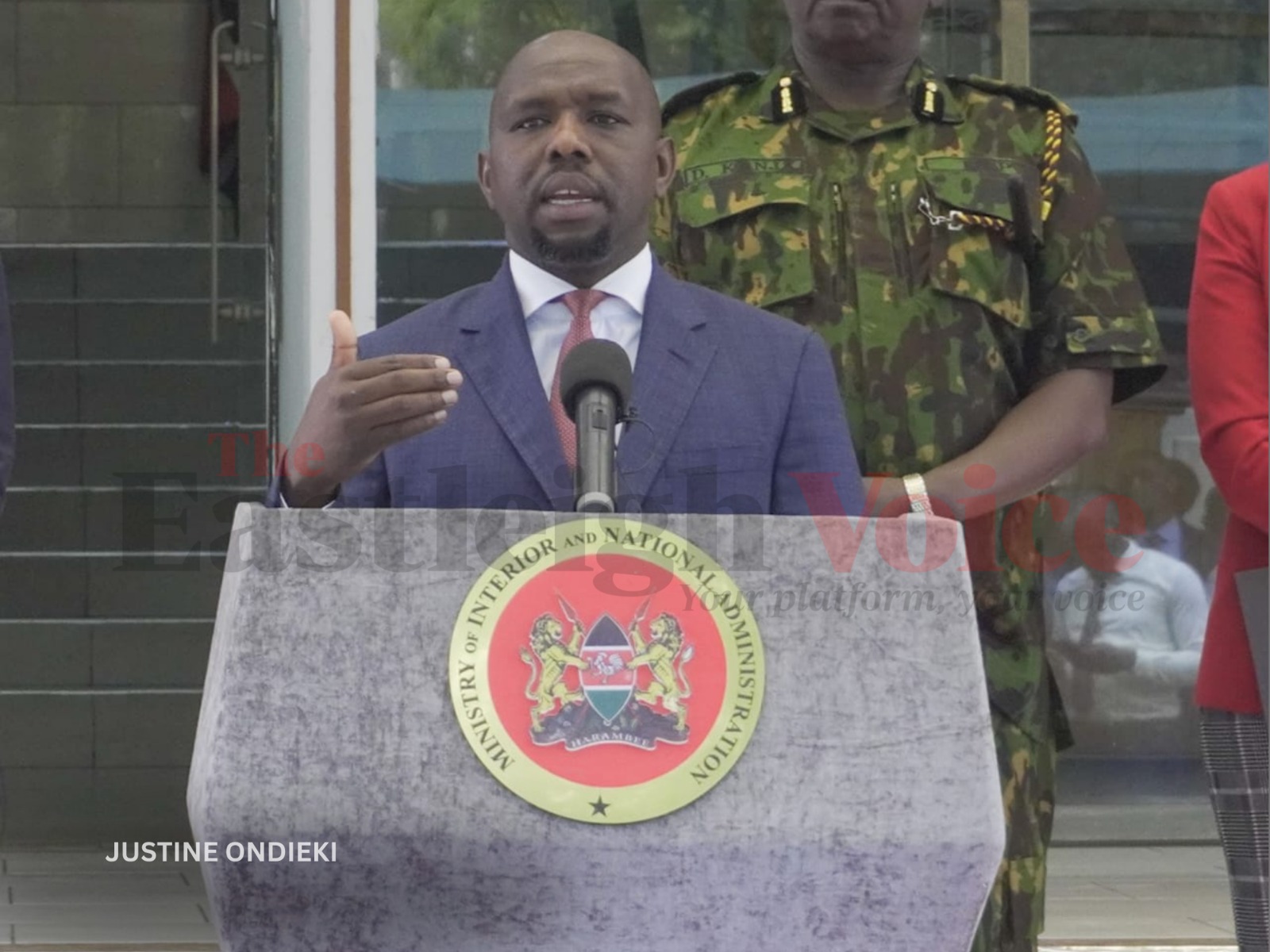Interior CS Kipchumba Murkomen orders installation of CCTV cameras in all 1,209 police stations

Footage from the surveillance systems will be managed by the Officer Commanding Station (OCS) and backed up externally to safeguard evidence and prevent interference.
2All 1,209 police stations across the country will be mandated to install Closed-circuit television (CCTV) surveillance cameras within two years, in a government effort to enhance transparency and curb police misconduct.
Interior Cabinet Secretary Kipchumba Murkomen said footage from the surveillance systems will be managed by the Officer Commanding Station (OCS) and backed up externally to safeguard evidence and prevent interference.
More To Read
- Murkomen warns politicians over hired goons, rising SGBV cases
- Murkomen warns perpetrators of by-election violence will face action
- Murkomen warns politicians against deploying supporters to by-election tallying centres
- Murkomen defends recall of Natembeya's security detail ahead of Thursday's by-elections
- How Ojwang’s killing sparked June 2025 Gen-Z protests
- Families demand resettlement as 31 landslide victims are laid to rest in Chesongoch
Murkomen said the surveillance will be a legal requirement for all existing and future police stations, and that the ministry will be seeking parliamentary support to criminalise any tampering with the cameras.
“It shall be mandatory to equip police stations with CCTV surveillance to enhance transparency and accountability. All the police stations currently standing at 1,209 shall have CCTV surveillance within the next two years. We shall be making proposals to Parliament to enact laws that criminalise tampering with CCTV cameras,” said Murkomen.
He added that each OCS will be personally responsible for the operation of the systems and must report any faults within one hour through the established chain of command.
“The surveillance system shall be in the custody of the Officer Commanding Station, and the said officer shall be required to ensure that the system is always functioning. In instances of fault, it shall be reported within one hour,” he added.
The CS noted that although some police stations already have CCTV cameras, those were installed independently and not under the official National Police Service (NPS) programme.
“It’s important for Kenyans to know that the current stations that have CCTVs are not CCTVs that are sanctioned fully by the National Police Service. It was the initiative of the individual police stations. Now, this shall be mandatory for the entire 1,209 police stations and other police stations that shall be constructed,” he said.
Murkomen also announced plans to digitise occurrence books (OBs) within a year, in line with the Bottom-Up Economic Transformation Agenda (BETA), to make police reporting more secure and tamper-proof.
“We shall roll out a digital reporting system. This is a reform that has been initiated, and we are now committed to the digitisation of occurrence books to ensure all reported incidences can be traced and be tamper-proof,” pledged Murkomen.
In addition, the CS said all police stations will be required to adopt community policing initiatives aimed at strengthening trust and collaboration between police and residents.
“Every police station shall be mandated to adopt and steer community policing models to improve relations with citizens. This integration with the local community will lead to greater accountability and improvement of working relations,” he said.
Murkomen also directed the immediate establishment of a policy framework for independent audits of police practices, resources, and conduct. He said the reviews will be done in partnership with civil society, religious leaders, and other stakeholders.
“I have directed the immediate establishment of a policy framework for conducting independent audits of police practices, procedures and use of resources to ensure compliance with established policies and identify areas for improvement. Working together with civil society, religious leaders and other stakeholders, we shall ensure regular audits and evaluations with awards to the best police officers, police stations, among others,” he said.
The government, he added, is working to build a performance-based system that rewards officers not only for enforcement but also for ethical conduct and community engagement.
“We are creating systems that evaluate officers’ performance based not just on enforcement metrics but also community relations and adherence to requisite ethical standards. This framework shall establish both the criteria for reward and sanction of respective police officers,” Murkomen said.
Top Stories Today
















































